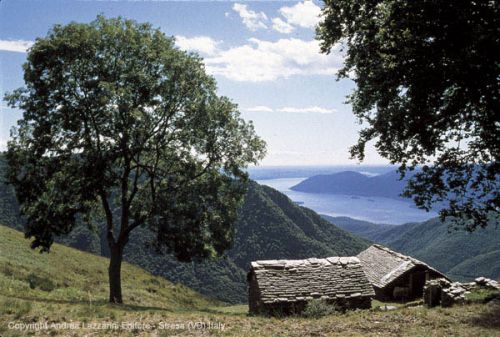Fossil supervolcano discovered in Italy by SMU-led team
is now key feature of new UNESCO Geopark
SMU's James Quick has been named a fellow of the AAAS for volcanic and geological research.

“It is a rare event that geology is a catalyst of public cooperation and celebration,” says geologist and volcano expert James E. Quick, Southern Methodist University, Dallas.

Recently designated a geopark by the United Nations Educational, Scientific and Cultural Organization (UNESCO), the Sesia-Val Grande Geopark encompasses more than 80 communities in the Italian Alps.
The communities joined forces more than two years ago to promote the park’s creation, which UNESCO made official in September. The geopark spans tens of thousands of acres and has at its center the massive, 282 million-year-old fossil supervolcano.
“Sesia Valley is unique,” said Quick. “The base of the Earth’s crust is turned up on edge, exposing the volcano’s plumbing — which normally extends deep into the Earth and out of sight. The uplift was created when Africa and Europe began colliding about 30 million years ago and the crust of Italy was turned on end. We call this fossil the ‘Rosetta Stone’ for supervolcanoes because the depth to which rocks are exposed will aid scientific understanding of one of nature’s most massive and violent events and help us to link the geologic and geophysical data.”
The fossil supervolcano was discovered by Quick’s scientific team, which included scientists from Italy’s University of Trieste. The supervolcano has an unprecedented 15 miles of volcano plumbing exposed from the surface to the source of the magma deep within the Earth. Previously, the discovery record for exposed plumbing was about three miles, said Quick.
Located in the Piedmont region of northwest Italy, the geopark also includes Val Grande National Park, the largest wilderness area in Italy. Sesia Valley and Val Grande are important historical and cultural locales.
Only a handful of locations worldwide are chosen annually for UNESCO’s coveted geopark designation, which supports national geological heritage initiatives.